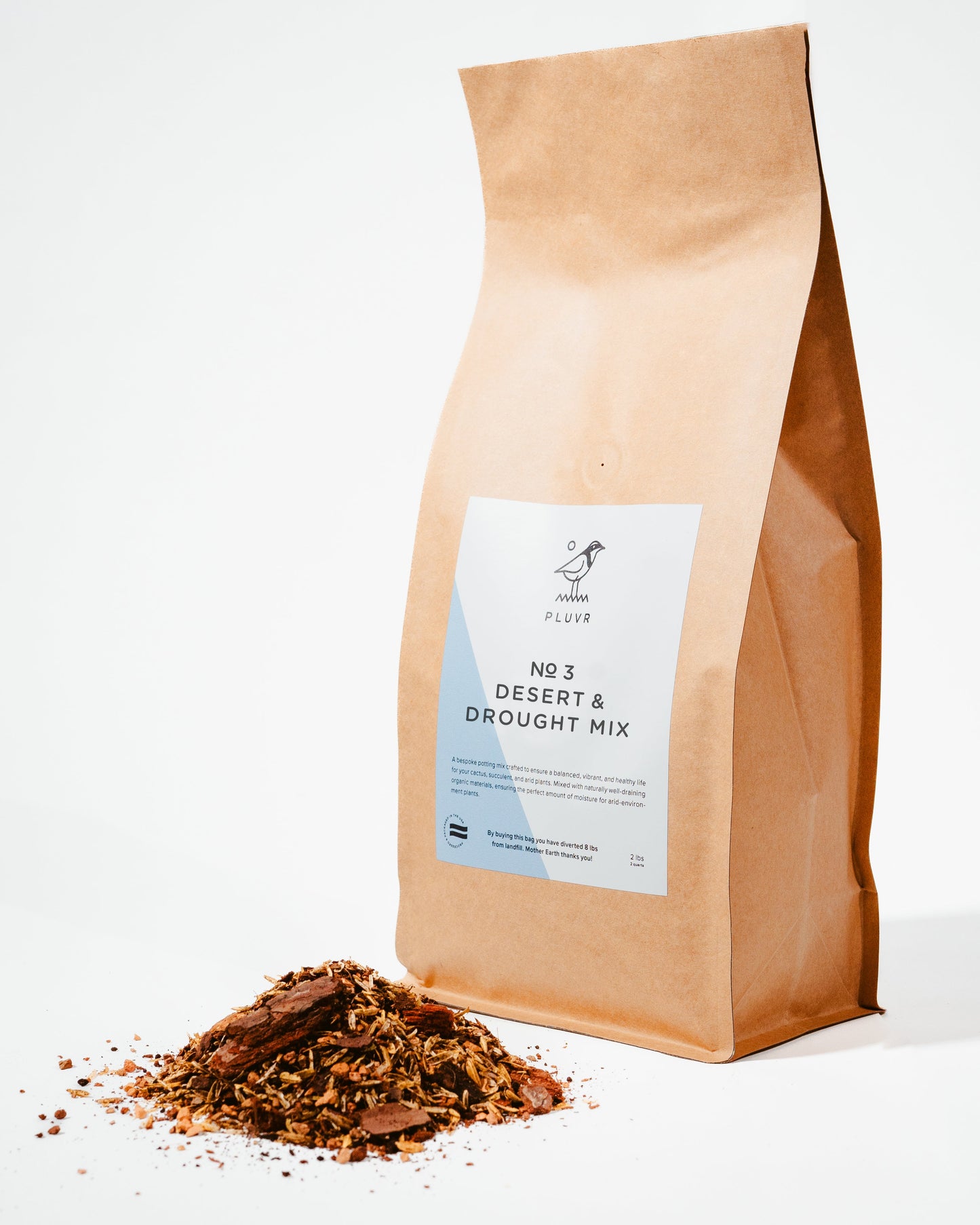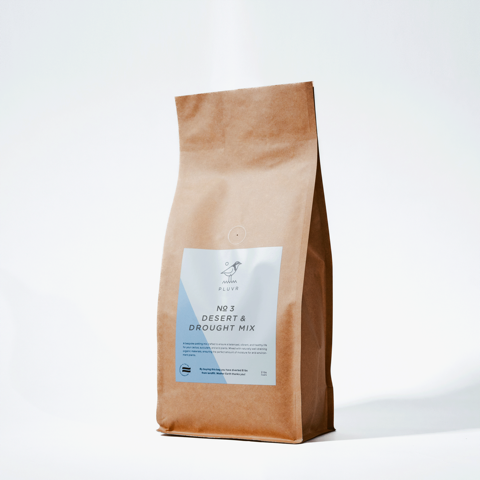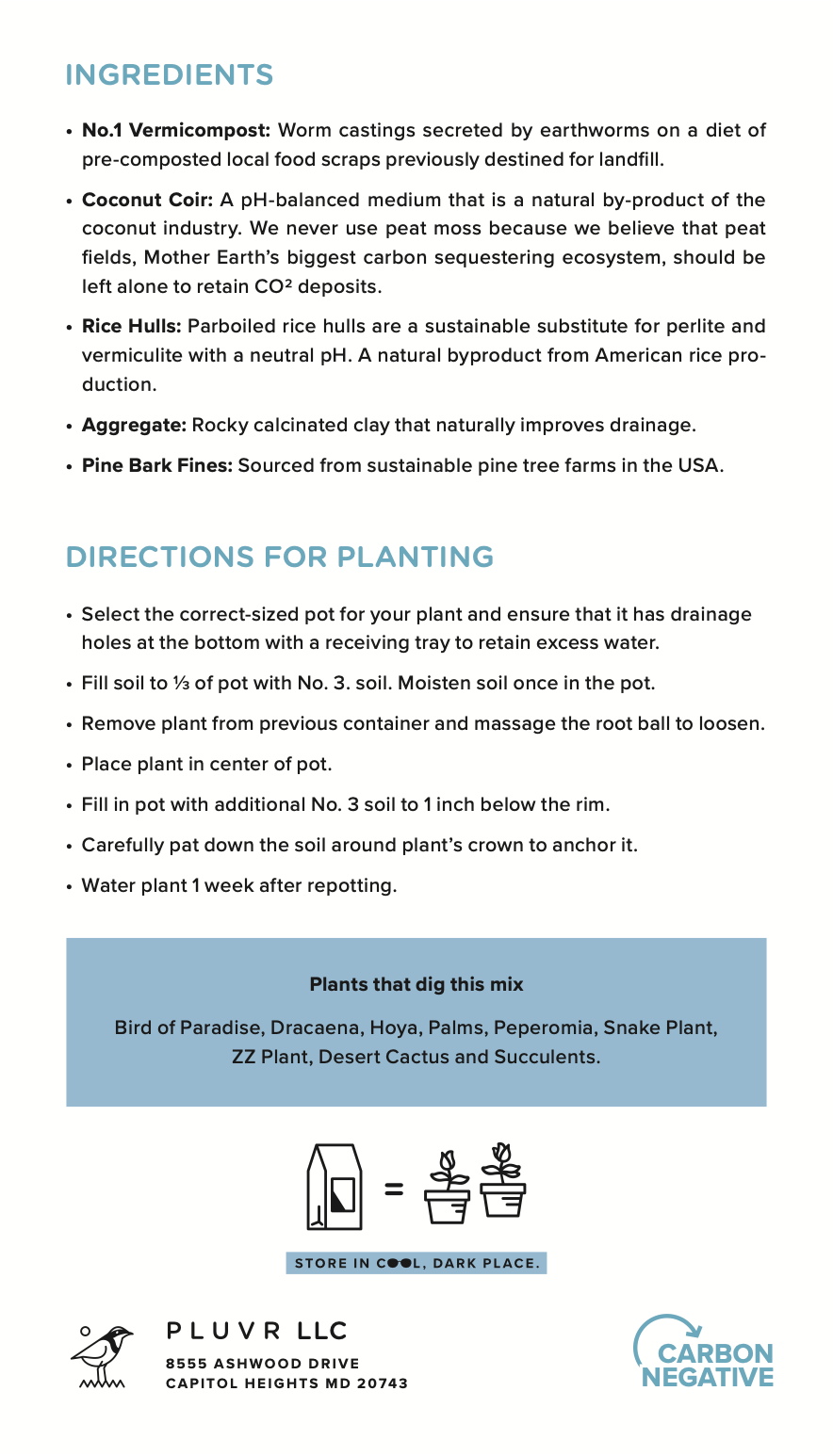1
/
of
3
Pluvr
№3 Desert & Drought Mix
№3 Desert & Drought Mix
Regular price
$14.95 USD
Regular price
$14.95 USD
Sale price
$14.95 USD
Unit price
/
per
Couldn't load pickup availability
A bespoke potting mix crafted to ensure a balanced, vibrant, and healthy life for your drought-tolerant tropical and desert-native plants. Mixed with naturally well-draining organic materials, ensuring the perfect amount of moisture for arid-environment plants
By buying this bag you have diverted 8 lbs from landfill. Mother Earth thanks you!
More Information
Ingredients
Ingredients
- No.1 Vermicompost: Worm castings secreted by earthworms on a diet of pre-composted local food scraps previously destined for landfill.
- Coconut Coir: A pH-balanced medium that is a natural by-product of the coconut industry. We never use peat moss because we believe that peat fields, Mother Earth’s biggest carbon sequestering ecosystem, should be left alone to retain CO2 deposits.
- Aggregate: Rocky calcined clay that naturally improves drainage.
- Pine Bark Fines: Sourced from sustainable pine tree farms in the USA.
How To use
How To use
- Select the correct-sized pot for your plant and ensure that it has drainage holes at the bottom with a receiving tray to retain excess water.
- Fill soil to 1⁄3 of pot with No. 3 soil. Moisten soil once in the pot.
- Remove plant from previous container and massage the root ball to loosen.
- Place plant in center of pot.
- Fill in pot with additional No.3 soil to 1 inch below the rim.
- Carefully pat down the soil around plant’s crown to anchor it.
- Water plant 1 week after repotting.
Plants to Pair
Plants to Pair
Bird of Paradise, Dracaena, Hoya, Palms, Peperomia, Snake Plant, ZZ Plant, Desert Cactus and Succulents.






